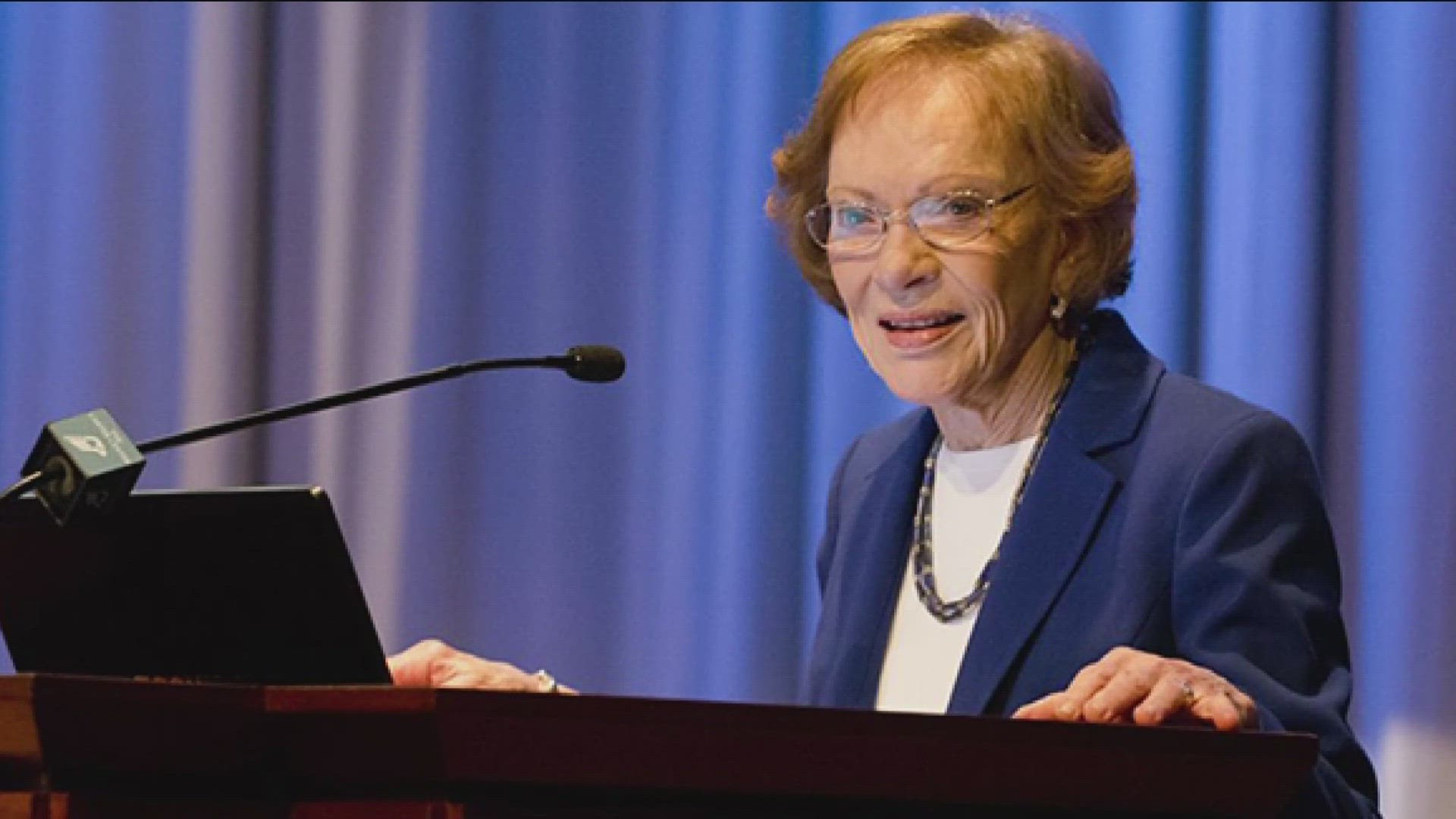PLAINS, Ga. — Rosalynn Carter never thrived on easy.
Among the many programs at the Carter Center tackling some of the world’s toughest issues – disease, free elections, peace – the former first lady chose to destigmatize mental health.
One strategic decision helped impact the conversation about mental health worldwide.
Train the people who craft the narrative: journalists.
“She wanted to do something unique and that wasn’t already being done by others and done well. She considered many things, but really landed on working with journalists,” Eve Byrd said, Director of the Mental Health Program at the Carter Center.
Mrs. Carter understood the power of the written word, being the author of several books about mental health herself. So, in 1996, she created the Rosalynn Carter Mental Health Journalism Fellowship.
She emphasized its impact at a fellowship meeting at The Carter Center in 2013, adding, "Media plays such an important role in influencing people's thoughts about mental illness and people living with mental illness, so this fellowship program, I think, is so important."
Although she was a co-founder of the Carter Center with former President Jimmy Carter, the fellowship is the only program at the Center that bears her name.
She gathered some of the world’s top advisors and experts to educate professional storytellers who can change the cultural conversation, influence policy, and inform their own newsrooms. This support network guides each journalist through a year-long fellowship as they dive into a relevant mental health issue.
“Every year, we have about 12 journalists who write on the issues that are really pressing of the day. They are more pressing now since COVID and since people are dealing with family members with Alzheimer’s and dementia,” said Paige Alexander, CEO of the Carter Center.
Over 40 years, the program has trained more than 250 journalists all over the globe. From the United States and Latin America to Romania, the United Arab Emirates, South Africa, and most recently Ireland, more than 1,500 stories were published under Mrs. Carter’s guiding hand.
It’s how 11Alive’s Christie Diez created the docuseries Desperately Waiting about the gaps in dementia care. Diez was part of the 2020 cohort right in the middle of the pandemic. For that year, everything took place on Zoom, but in years past, Mrs. Carter would meet and talk with the Fellows face to face and insist on updates from each project.
“She was very involved. She loved her programs and was constantly updating herself. I met with her frequently, at least once a month, to update on what was going on in the program,” Byrd said.
Even without its fearless founder, Byrd says the program will go on.
“It is more important than ever, honestly. I remember Mrs. Carter saying, ‘I don’t know that I’ll see the end of stigma in my life, but I see great change,’” Byrd said.
Now, her worldwide legacy, one journalist at the time, will continue the mission.
As Mrs. Carter said to Fellows in 2013, “One good thing about [the fellowship program] is journalists come and get interested in mental health issues, and most of them just continue to work on mental health issues, so it goes on and on. It’s really exciting.”

